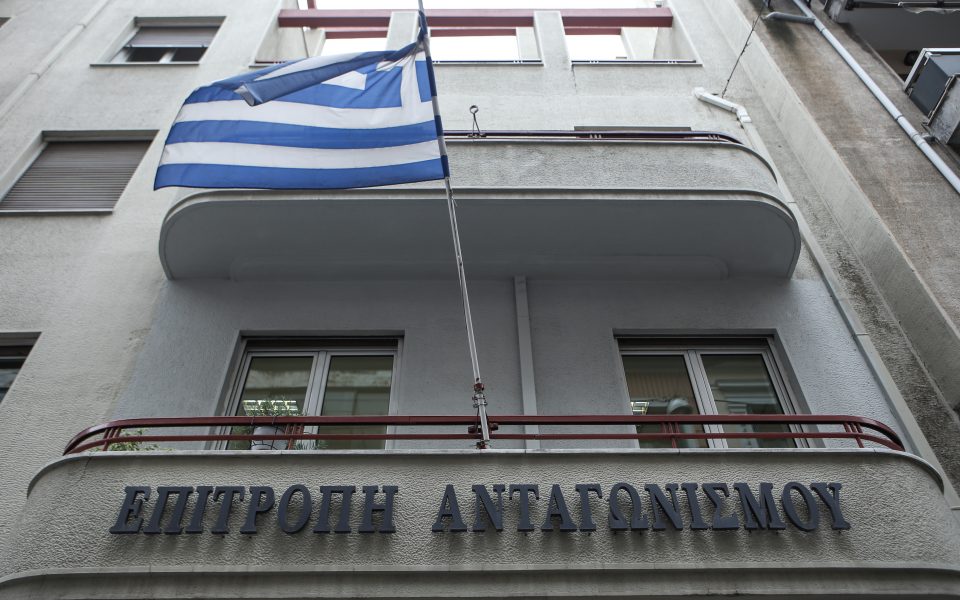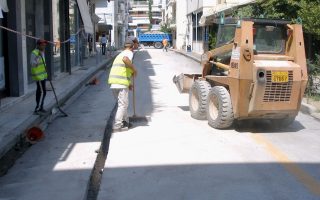Enhancing the effectiveness of NCA investigative powers

Revealing anti-competitive conduct, often conducted in secret (e.g. cartels), and subject to investigation by the European Commission or the national competition authorities (NCAs), requires that competition authorities be given broad investigative powers. The authority’s powers to carry out on-the-premises inspections and that of requiring legal and/or natural persons to provide all necessary information in order to detect evidence of infringement of free competition rules and, where appropriate, to impose sanctions constitute the main tools usually employed in the enforcement of competition law.
The power to conduct inspections referred to commonly as dawn raids is entrusted to NCAs’ personnel or personnel authorized by the respective NCA. They are conducted in business premises and/or, less frequently, in the homes of directors, managers and other members of staff of undertakings or associations of undertakings under investigation and they constitute the pinnacle of investigative measures for the effective application of competition law rules.
According to Article 39 of Law 3959/2011 of the Greek Competition Act (GCA) for the protection of free competition, the authorized officials of the Directorate-General of the Hellenic Competition Commission (HCC) “shall exercise the powers of tax auditor” when conducting unannounced inspections of undertakings and associations of undertakings; that is, they are, indicatively, empowered to inspect, to collect and/or to seize any document, including digital or other form, to which the undertaking or association of undertakings has access to and which is relevant for the inspection, as this is set in the search order/warrant issued by the NCA.
Both the HCC and tax authorities carry out on-the-premises inspections on the basis of search orders/warrants issued by their competent bodies. These may be respectively challenged in courts together with the final decision that imposes sanctions for anti-competitive conduct or a tax-offense fine. At the same time, as is also stipulated in the Fiscal Procedure Code for tax-related offenses, the legal or natural persons that are subject to the inspections of the HCC are obliged to actively cooperate with its authorized officials and therefore to facilitate the performance of their inspection duties. From the above, it becomes evident that there exists a close analogy between the HCC’s investigations and the tax audits performed by tax authorities, and in particular that the HCC’s inspections should be afforded similar guarantees of effectiveness as those provided by law for audits performed by tax authorities.
It is important here to note that the “ECN plus” Directive (EU) 2019/1, whose transposition in Greece is still pending, stipulates among its goals that of empowering “the competition authorities of the member-states to be more effective enforcers and to ensure the proper functioning of the internal market,” therefore showing that the EU legislature shares the goal of further enhancing the investigative powers of NCAs and, consequently, the effectiveness of competition law enforcement across the European Union. This should take into account the specificity of the local circumstances (hence the choice of the harmonization instrument of the Directive and not that of a Regulation as per Regulation 1/2003).
The HCC fully respects the principles of legality and proportionality, in its relevant, long-established now practice and tradition, which over time, and especially in recent years, has evolved and improved. It selects, following a thorough prior examination, both the sectors as well as the undertakings to be investigated for possible anti-competitive practices, in order to investigate alleged unlawful conduct, which often has a large negative economic impact on society. This selection is based on the assessment of information garnered from reliable sources (e.g. complaints, whistleblowers, press reports), but which also now often includes an in-depth economic analysis conducted on the basis of data collected from the HCC’s market monitoring and mapping mechanism (Big Data). It is worthy of note that according to empirical studies, only 10-20% of cartels are usually discovered by competition authorities. Most of the cartels, both in the EU and in the USA, are brought to light through the participation of some cartel offenders in the “leniency program,” where in exchange for immunity or fine reduction they disclose information to the competition authorities on competition law infringements. However, during the 15 years since the introduction of a leniency program in Greece, and most likely due to the limited size and the closed nature of the Greek economy, this extremely important tool for detecting cartels has not yet produced the desired results. It is therefore necessary to enhance the effectiveness of the HCC’s other investigative tools, such as on-the-premises inspections, especially in situations in which companies have multimarket contacts, in particular if they are present as competitors in multiple product or geographic markets, and there is therefore a significant risk, according to the economic literature, that they would expand their anti-competitive collusive practices in all markets in which they may compete.
National competition authorities also hold the power to provide legal or natural persons with written requests for information that is necessary to conduct the investigation. The corresponding power of the HCC is based on Article 38 of Law 3959/2011. Following well-established EU and national case law, competition authorities enjoy a wide margin of discretion in determining the information necessary to establish an infringement in each case, always in accordance with the principles of proportionality and no self-incrimination. The new bill amending Law 3959/2011 fully recognizes the continuous indisputable validity of these principles, which are now explicitly stated in a relevant provision.
The fact that the HCC disposes and exercises essential investigative powers to effectively enforce the law has made it possible for it to intervene in key sectors of the economy, namely during periods of prolonged economic crisis, such as those experienced by Greek society, during which adequate and effective competition law enforcement played a key role in achieving a fair balance between the need to provide market players the necessary flexibility in order to contribute to economic stability and recovery and that of ensuring that the competitive structure of markets is preserved in the long run for the benefit of consumers, especially the most vulnerable.
In any case, it is undeniable that the rules of free competition law aim to safeguard both collective interests, such as the safeguarding of a competitive market structure, consumer welfare, but also economic freedom, as enshrined in the primary EU law (articles 101 et seq., 120 TFEU) and the Greek Constitution (articles 5 and 106 C).
Effective enforcement of competition rules encourages entrepreneurship, increases efficiency, broadens consumer choices, and helps reduce prices and improve quality. It therefore works for the benefit of sound entrepreneurship and therefore of society at large (citizens/consumers).
As an authority entrusted with the duty of enforcing competition law, the HCC has developed significant guarantees for the protection of the procedural rights of undertakings or associations of undertakings under investigation, including through the reorganization of its structure with the establishment of the position of chief legal officer, the conduct of specific analysis and assessment prior to investigative measures and when deciding the investigative strategy of a case, and the constitution of an extensive Manual of Procedures providing the necessary transparency and efficiency. The public interest impact of a case is also explicitly duly taken into account as an important parameter for the prioritization of cases pending before the HCC.
In conclusion, in its mission as a guarantor for the proper functioning of markets, the HCC’s investigative powers provide it a valuable and necessary tool for the protection of the public interest but also both procedural and substantive fundamental rights of undertakings and consumers/citizens.
Ioannis Lianos is president of the Hellenic Competition Commission and professor of global competition law and policy at the Faculty of Laws, University College London (on leave). Kalliopi Benetatou is vice president of the Hellenic Competition Commission and has a PhD in economic science from the Athens University of Economics and Business.





